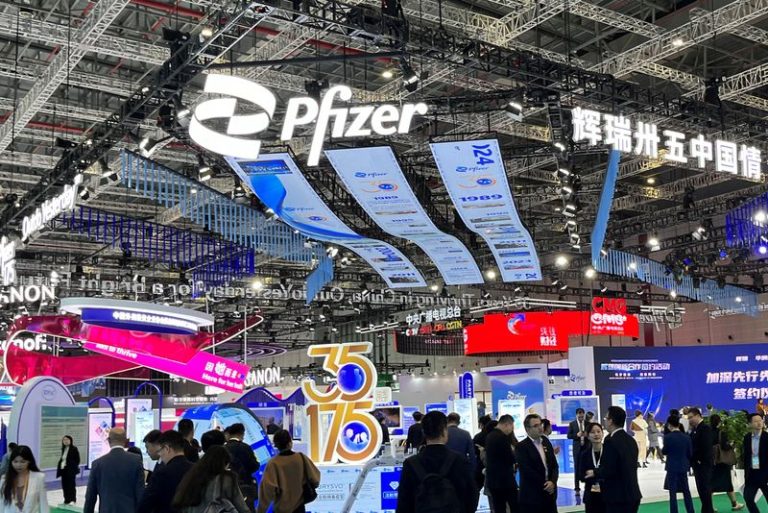By Manas Mishra, Michael Erman
(Reuters) -Pfizer on Tuesday said it does not expect the Trump administration to make major changes to vaccine policy next year even as the president-elect has put forward vaccine skeptic Robert F. Kennedy Jr. as his nominee to run the Department of Health and Human Services.
Pfizer (NYSE:PFE) CEO Albert Bourla told analysts at an investor conference that he had met RFK Jr. and Trump for dinner, confirming earlier media reports, and had developed a good relationship with Kennedy.
“If he’s confirmed, we will work with him to make sure that we advance the right policies,” Bourla said.
Kennedy has long sown doubts about the safety and efficacy of vaccines that have helped curb disease and prevent deaths for decades. He disputes the anti-vaccine label and has said he would not prevent Americans from getting inoculations. Trump has said he could end some childhood vaccinations if he thinks they are dangerous.
Bourla said Trump seems very committed to reforming how middlemen called pharmacy benefit managers operate within the U.S. health care system.
Patients “will see a dramatic reduction in the cost they are experiencing with their medicines if that happens,” he said. On Monday, Trump said at a news conference that he plans to eliminate their role.
Besides COVID-19, Pfizer makes vaccines for pneumococcal disease and respiratory syncytial virus. Shares of the company and other vaccine makers came under pressure when Trump announced Kennedy as his choice for HHS secretary.
Also on Tuesday, Pfizer forecast 2025 profit roughly in line with estimates, offering some relief to investors after the drugmaker came under fire from shareholders including hedge fund Starboard over its turnaround strategy.
Shares of the drugmaker rose 3.7% to $26.20 in early trading after the company also said it was expecting 2025 sales of its COVID-19 vaccine and drug to be consistent with current-year levels.
After the immense success of its COVID products during the pandemic years, the company is facing pressure to bring new drugs to the market to make up for the potential revenue loss from some of its top sellers that are likely to go off patent soon.
Shares have fallen nearly 12% this year and trade at less than half their value at the peak of the COVID-19 pandemic. Analysts over the past few weeks have also cut their estimates for Pfizer’s profit.
That has left the company open to investor criticism, with Starboard in October saying its management has overspent on big acquisitions and failed to produce profitable new drugs from those deals or from its internal research and development.
Pfizer’s Bourla, however, has defended his turnaround strategy as the company launches cost-cutting programs and sheds non-core businesses to pay down debt.
The company expects adjusted profit of $2.80 to $3 per share, compared with analysts’ average estimate of $2.88 per share, according to data compiled by LSEG.
Pfizer forecast 2025 revenue in the range of $61 billion to $64 billion, compared with estimates of $63.26 billion.

